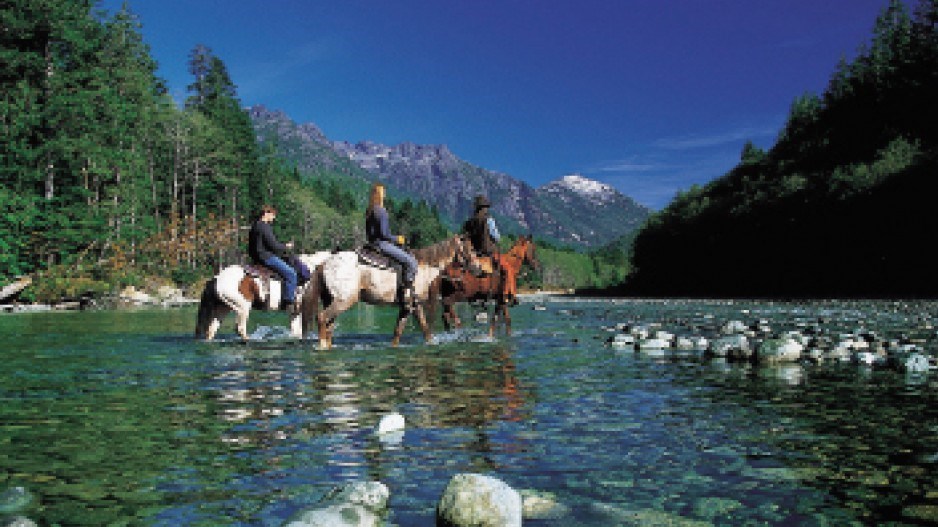Wilderness tourism is big business in B.C., worth $1.6 billion in direct revenues and employing approximately 50,000 people. The sector encompasses a broad range of adventures, from heli-skiing to kayaking, that connect people with the province’s natural splendour.
However, since the 2008 financial crisis and the ensuing recession, the landscape for tour operators has changed dramatically. Business from the U.S. has declined, and guest ranches that once served up the last best West to American visitors now focus on offerings that play up a frontier of Europe’s imagining. Diversification and upscale offerings are the game, and the sector’s revenue has rebounded accordingly.
“The industry continues to grow incrementally across the board,” said Evan Loveless, executive director of the Wilderness Tourism Association of BC, based in Cumberland. He pointed to upscale wilderness retreats, like popular Clayoquot Wilderness Resort, which now mix the wild and mild. While skiing in its many forms remains a draw, the resorts have become four-season departure points for backcountry day-trippers. The resorts offer luxury a tree’s length from the outdoors and provide a comfortable base for rugged experiences.
According to a B.C. Ministry of Jobs, Tourism and Skills Training study released earlier this year, 91% of the province undertakes some kind of outdoor recreation in a given year, typically hiking, swimming or camping but also wildlife viewing, boating and backcountry camping.
Resorts and base camps are integral to those pursuits, Loveless said, as the emerging generation of adventure tourists prefer intense, one-day hits to the more immersive experiences older travellers continue to favour.
Many tourists are also seeking a unique cultural component to tour offerings; wildlife viewing, fishing and hunting are great – but outfitters and guides who can offer the perspective of First Nations are finding strong demand for their offerings.
Just as the Osoyoos Indian Band has been able to put an aboriginal spin on the wine industry through Nk’Mip Cellars and golf courses such as Canyon Desert, Loveless said excursions incorporating First Nations culture are in demand.
A growing source of interest is Chinese tourists keen to experience the open spaces B.C. has to offer.
“The outdoors, the remoteness and the adventure of it – catching big fish or hunting, it’s just not available to them [at home],” said Brian Alexander, sales manager for West Coast Resorts, a venture of Haida Enterprise Corp. (HaiCo) that operates four fishing lodges on the Central Coast and Haida Gwaii.
“They like to be treated well, and we can do that.”




